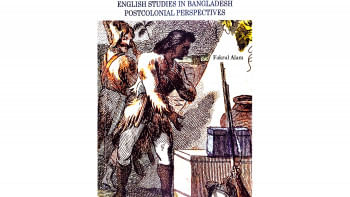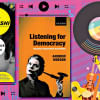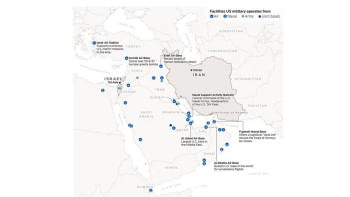Charles Dickens, colonialism, and the slave trade

The British writer, playwright, and journalist J. B. Priestley wrote an essay on Charles Dickens, titled, "The Great Inimitable". It was included in E. W. F. Tomlin's book Charles Dickens, 1812-1870: A Centennial Volume that was published in 1970. The centenary year of Dickens' death also saw the release of Ned Sherrin's television film The Great Inimitable Mr Dickens (1970), which featured the life of the Victorian novelist.
The term "inimitable" in the above titles demonstrates the celebrity status of Charles Dickens among English writers, especially for his socially conscious and journalistic fictions. Among his contemporaries, he was unique for his realist portrayals of poverty and social injustice, and for his satiric attacks on the British bourgeoisie.
Dickens' literary career coincided with the expansion of Britain's imperial control and tyranny over the peoples in other lands. Although in his writing he maintained a firm commitment to social justice in Victorian England, he was silent about his country's ruthless colonial practices and exploitation in Africa and Asia. He wrote during the rise of industrial capitalism in Britain and its unrivalled geographical reach, which engulfed over a quarter of the globe.
As the colonies were sources of raw materials for Britain and were its markets for goods produced in the metropolis, they were also outlets for its surplus population. In that sense, Dickens was a beneficiary of this colonial mobility, as most of his sons found their way into British colonies. In her book Dickens and Empire (2017), Grace Moore quotes the Victorian biographer John Forster who, in 1860, said of Dickens' sons: "Charley is in the Far East, Sydney is at sea, Walter in India, Alfred in Australia, whither [Dickens] is planning to send another boy to join him".
In a 2004 essay on Dickens and China, Jeremy Tambling of the University of Hong Kong elaborates on Dickens' sons' association with Britain's overseas expansion and imperialist ventures: Walter was in the army and died in Calcutta (now Kolkata); Francis worked in Bengal as a police officer and later moved to Canada and died in Illinois in the US; Alfred worked in London before emigrating to Australia and died in Britain; Edward died in Australia; the navy officer, Sydney, went to America and Australia, died in the Indian Ocean, and was buried there; Dickens' first child, Charles Dickens Jr, visited China, Hong Kong, and Japan as a merchant but lived most of his life in Europe and died in London.
The industrial revolution and colonial expansion put together contributed to Britain's remarkable advances in economic growth and increasing political clout and territorial reach globally. All these were metaphorically encapsulated in the Crystal Palace of the Great Exhibition of 1851 in London's Hyde Park, which Dickens' magazine, Household Words, covered and celebrated. Dickens did not question the colonial political order that systematically positioned the colonised as inferior races and induced their exploitation.
In his 1853 article, "The Noble Savage", Dickens belied any notion that colonised non-Europeans, if uncorrupted by the vices of Western civilisation, could have some redeeming features which could compensate for their otherness or putative racial inferiority. He was against the idea of working for the amelioration of colonised peoples in Africa and by extension Asia. Even though he employed his literary gift to expose social injustices in Britain and to create awareness of the suffering of the have-nots in the country, he did not advance any measures for the prevention of colonial abuses and excesses. That is to say, he was all for looking after the poor and the marginalised in his country only, but did little to address the myriad problems facing the colonially oppressed communities around the world or to heal their distress caused by British colonialism.
Dickens made statements about the Great Indian Rebellion of 1857 and about the Morant Bay Rebellion of 1865 in colonial Jamaica. His views about these anticolonial uprisings were cruel, imperialistic, and "offensive".
According to Alex Tickell of the Open University in the UK, "Dickens was even more unequivocal in defence of the violence of empire in his seemingly genocidal reaction to the rebellion against British rule which swept across India in 1857." Dickens' nationalistic and (white) supremacist sentiments and xenophobic rhetoric involving British colonial adventures in South Asia are manifest in the notorious Christmas story, "The Perils of Certain English Prisoners" (1857), which he co-authored with his friend and fellow novelist, Wilkie Collins. A fictionalised and thinly disguised retelling of the 1857 events in British India, the text contains an overtly colonial theme and instances of Dickens' and Collins' blatant and unabashed Eurocentric racism.
For these and other reasons, Dickens is widely regarded as a supporter of imperialism. It is worth mentioning here that there are attempts to shield him from this charge by saying that, in his unfinished novel, The Mystery of Edwin Drood (1870), Dickens criticised, and distanced himself from, colonialism. However, textual and circumstantial evidence suggests that his inclination towards imperialism outweighs such defence.
What is more, Dickens indirectly presents a positive view and perspective of the slave trade by portraying those involved in it as kind-hearted and good-natured human beings, not as perpetrators of horrid crimes. In Oliver Twist (1839), while giving care to the sick Oliver, the housekeeper of Mr Brownlow's house, Mrs Bedwin tells the orphan boy stories about an amiable and handsome daughter of hers, who was married to an amiable and handsome man, and lived in the country. She also told him about a son, who was a clerk to a merchant in the West Indies, and who was, also, such a good young man who wrote such dutiful letters home four times a-year, that it brought tears to her eyes to talk about them.
Here, Dickens seeks to sweep the horrors of the nineteenth-century slave trade under the rug. This is despite the fact that, during his lifetime, abolitionist and anti-abolitionist arguments in Britain—especially in the 1830s—and elsewhere dominated the public discourse. After a long campaign led by, among others, William Wilberforce, the British parliament passed the Slavery Abolition Act (1833) that eventually made slave ownership illegal in most British colonies. The Act led to the freedom of hundreds of thousands of slaves. Dickens must have been aware of the abolitionist debates in Britain when he wrote Oliver Twist, but he chose to ignore the macabre aspects of slavery or the physical and sexual abuses of slaves by their masters. The depiction of Mrs Bedwin's slave-master son in a positive light in the novel does not show any sensitivity of the novelist to existential angst, abuse, and dread associated with slave trading.
The above discussion suggests that Dickens' views about colonialism and the slave trade had been the elephant in the room, and were rarely talked about for a long time especially during his lifetime. As Dickens was a very successful writer, words of praise and admiration were heaped upon him. He "enjoyed a wider popularity than any previous author had done during [their] lifetime," according to the fifth volume of The New Encyclopaedia Britannica. Although he condoned colonial exploitation, no one censured him then for his unprincipled and opportunistic stance. But as we now know, time has not forgiven him for his racist and imperialist views.
Likewise, there are many writers and intellectuals in our time who have gained fame and fortune and enjoy prestige and perks due to their creative and scholarly achievements. But they are indifferent, apathetic, or oblivious to the victims of the Israeli genocide in Gaza or are somehow complicit with the mass murder. One day, time will bring them to justice and posterity may not forgive them.
Md Mahmudul Hasan, PhD, is Professor in the Department of English Language and Literature, International Islamic University Malaysia. Email: [email protected].

 For all latest news, follow The Daily Star's Google News channel.
For all latest news, follow The Daily Star's Google News channel. 










Comments